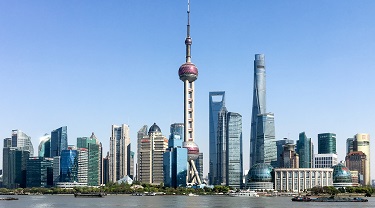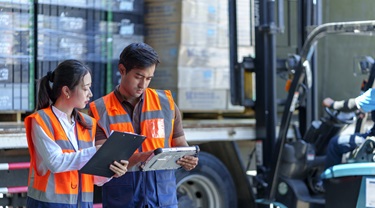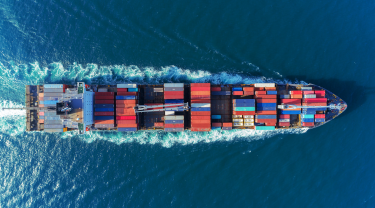

MyEDC account
Manage your finance and insurance services. Get access to export tools and expert insights.
Solutions
By product
By product
By product
By product
Insurance
Get short-term coverage for occasional exports
Maintain ongoing coverage for active exporters

Learn how credit insurance safeguards your business and opens doors to new markets.

See how portfolio credit insurance helped this Canadian innovator expand.
Guarantees
Increase borrowing power for exports
Free up cash tied to contracts
Protect profits from exchange risk
Unlock more working capital

Find out how access to working capital fueled their expansion.
Loans
Secure a loan for global expansion
Get financing for international customers
Access funding for capital-intensive projects

Find out how direct lending helped this snack brand go global.

Learn how a Canadian tech firm turns sustainability into global opportunity.
Investments
Get equity capital for strategic growth

Explore how GoBolt built a greener logistics network across borders.
By industry
Featured

See how Canadian cleantech firms are advancing global sustainability goals.

Build relationships with global buyers to help grow your international business.
Resources
Popular topics
Explore strategies to enter new markets
Understand trade tariffs and how to manage their impact
Learn ways to protect your business from uncertainty
Build stronger supply chains for reliable operation
Access tools and insights for agri-food exporters
Find market intelligence for mining and metals exporters
Get insights to drive sustainable innovation
Explore resources for infrastructure growth
Export stage
Discover practical tools for first-time exporters
Unlock strategies to manage risk and boost growth
Leverage insights and connections to scale worldwide

Learn how pricing strategies help you enter new markets, manage risk and attract customers.

Get expert insights and the latest economic trends to help guide your export strategy.
Trade intelligence
Track trade trends in Indo-Pacific
Uncover European market opportunities
Access insights on U.S. trade
Browse countries and markets
Get expert analysis on markets and trends
Discover stories shaping global trade
See what’s ahead for the world economy
Monitor shifting global market risks
Read exporters’ perspectives on global trade
Knowledge centre
Get answers to your export questions
Research foreign companies before doing business
Find trusted freight forwarders
Gain export skills with online courses
Discover resources for smarter exporting
Get insights and practical advice from leading experts
Listen to global trade stories
Learn how exporters are thriving worldwide
Explore export challenges and EDC solutions
About
Discover our story
See how we help exporters
Explore the companies we serve
Learn about our commitment to ESG
Understand our governance framework
See the results of our commitments
MyEDC account
Manage your finance and insurance services. Get access to export tools and expert insights.

During these challenging times due to the COVID-19 pandemic, EDC remains committed to helping Canadian businesses. In this new series, we’ll share our feet-on-the-ground insights about markets around the world and how they’re being impacted by the health crisis. Today, we start with Chia Wan Liew, our chief representative for Greater China.
When news of the COVID-19 outbreak in Wuhan, China, made global headlines in December 2019, life as we knew it in China was changing at an alarming pace. There was a lot of confusion and fear as the local authority tried to act swiftly to contain this new strain of coronavirus.
Lockdown, quarantine, movement control, panic buying, fake news being circulated on social media and confusing data all compounded the issue. As the world watched the contagion implode within China, a strong sense of despair emerged that China was left to fend for itself.
The Canadian government was one of the few countries that offered much-needed assistance to China by shipping 16 tonnes of personal protective equipment (PPE) such as clothing, face shields, masks, goggles and gloves to help the country battle the virus during the peak of the outbreak in February. The thoughtful gesture by Canada is now being reciprocated by China, which donated tens of thousands of PPE to Canada on March 27.
After many weeks of aggressive battle, the situation in China is improving with many parts of the country implementing controlled back-to-work measures. All major cities are almost, if not already, back to normal capacity. Public facilities such as libraries and parks are gradually reopening, but with strict social distancing being enforced. In Wuhan, businesses are reported to be operating at 60% capacity and many factories are ramping up productions to catch up with backlogs.

Airlines, travel, hospitality, leisure and the entertainment industry are the hardest hit. Most manufacturing sectors are also deeply impacted. The initial hope that the economy would recover rapidly is now hampered by the pandemic that has gone global with many countries facing the same shutdowns China went through.
China is also at risk of a second wave of contagion as many people, especially college and university students fleeing other parts of the world such as Europe and North America, return to China. During the week of March 23, more than 95% of the new infections detected were people who had recent history of travel or just returned from abroad. As a result, the country has closed its borders with the suspension of all international visas.
On the other hand, online shopping, e-commerce platforms, and logistic and certain IT companies, like web-based solutions providers, have thrived during this period. Canadian companies providing web solutions such as e-learning, virtual conferencing and remote working technology also enjoyed very brisk business. Not surprisingly, pharmaceutical companies and health-care equipment and medical device producers have also been kept extremely busy.
The Canadian business community displayed an amazing level of solidarity during this challenging period. Chat groups, initiated by local chambers of commerce, enabled many to exchange and validate information. Staff from the Canadian embassy and consulate jumped in from time to time to clarify misinformation, and encouragement and words of support were offered to those negatively impacted by the health crisis.
Canadian businesses in China are gradually picking up in tandem with their local counterparts and domestic industries. Those servicing or supporting clients who are domestically focused are recovering well, but those involved in export from China—directly or indirectly—are facing a lot of uncertainties, with the exception of the medical devices or health-care equipment industries.
Some Canadian businesses involved in trading and distribution are actively scouting for opportunities, sourcing materials and equipment related to the fighting of the deadly virus. Small numbers of unauthorized or unqualified manufacturers that produce sub-standard products have surfaced and Canadian businesses need to be extra vigilant in their due diligence.
At Export Development Canada, we can help them get the financing they need at their banks to cover their payroll and operating costs with our new EDC Business Credit Availability Program (BCAP) Guarantee. There’s also a lot of support being offered by Global Affairs Canada, especially in terms of timely notification of major changes in regulations, important briefings and information sessions on how to protect yourself against the contagion. The local chapters of Canadian Chambers of Commerce and the Canada China Business Council offered a series of webinars, including one which raised awareness about EDC and our products and services.
Chia Wan Liew is Export Development Canada’s chief representative of Greater China based in Hong Kong.

A guide to Group D Incoterms, focusing on delivery, duties and risk transfer.

A 2026 update to EXW Incoterms, costs, delivery obligations and risk transfer explained.

Explore how tariffs work, who pays them and if they’ll affect your sales.

Explore the impact of tariffs and learn about support programs and compliance strategies.

Insights and analysis from EDC on navigating the U.S. business environment